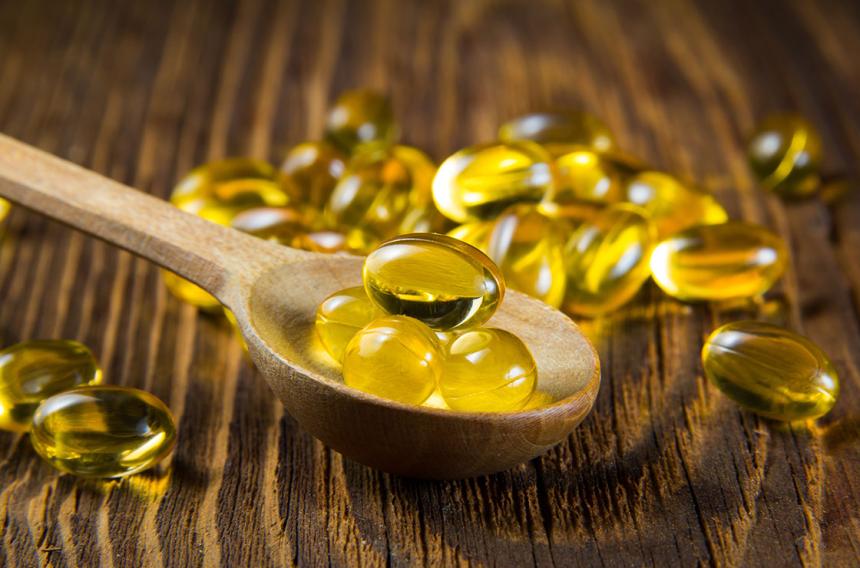Study: Fish Oil Supplements Can Help Your Reduce Cardiac Risks

Supplementing with fish oil is now linked with lowering your risk of cardiac death, according to a recent meta-analysis published in the Journal of Clinical Lipidology. It’s only a moderate eight percent reduction, but I’ll take it.
I’m sure you’ve heard about the health benefits of omega-3 fatty acids and even try to get them into your diet. But not all omega-3 fatty acids are created equal.
Omega-3 fatty acids are divided into three categories – alpha-linolenic acid (ALA), eicosapetaenoic acid (EPA) and docosahexaenoic acid (DHA).
ALAs are short-chain acids found in plant-based foods such as flaxseeds and flaxseed oil, walnuts, pumpkin seeds, soybeans and soybean oil, canola oil and some green vegetables. They help reduce inflammation and prevent chronic diseases. And they’re easy to get into your diet — canola and vegetable oils are commonly used for cooking and soybean oil is an ingredient in many processed foods.
Of course, nuts and seeds have value, but many oils are questionable. Let’s look at canola oil. About 90 percent of the crop is genetically modified and trans fats form during processing. And soybean oil is associated with obesity, insulin resistance and diabetes.
Meanwhile, the typical American diet lacks EPAs and DHAs. These are long-chain acids found in fatty fish such as mackerel, herring, tuna and salmon. They’re credited with helping:
- Reduce sudden abnormal rhythms.
- Prevent heart scarring, helping the heart function better.
- Improve the function of the endothelium (blood vessel lining) which can lower blood pressure and heart rate in some people.
- Lower inflammation.
- Possibly lower the risk of clotting.
The problem is most Americans don’t eat enough fish, so they can’t reap the benefits of EPAs and DHAs. Here’s the good news: If you’re not a fan of seafood, you can supplement with fish oil.
Talk to your doctor about taking a combined EPA/DHA fish oil supplement. If it doesn’t interfere with your other medications or conditions, get guidance on an appropriate dosage. For instance, if you’re healthy but not getting enough fish in your diet or if you have heart disease, your doctor may advise taking 1,000 mg of the active ingredients daily; whereas, if your triglycerides are higher than 500, you might need 4,000 mg and possibly prescription omega-3s.
When you’re ready to buy an oil, look for a reputable brand. There are many but the first that comes to mind is Nordic Naturals. I also order from Life Extension and Vitacost. Also, check the expiration date to make sure you have enough time to get through the bottle. Lastly, oils should have been:
- Tested for heavy metals
- Sealed in an air-tight container
- Stored away from light
Consult your primary care physician about preventing and controlling cardiovascular disease. And if you liked this blog post, you can follow Dr. Malinow on his Facebook page – www.facebook.com/LouisMalinowMD. Are you interested in an MDVIP-affiliated physician? Find one near you and begin your partnership in health »
This blog reflects the medical opinion of Dr. Lou Malinow, an MDVIP-affiliated internist, board-certified hypertension specialist and Diplomate of the American Board of Lipidology, and not necessarily the opinion of all physicians in the MDVIP national network.


